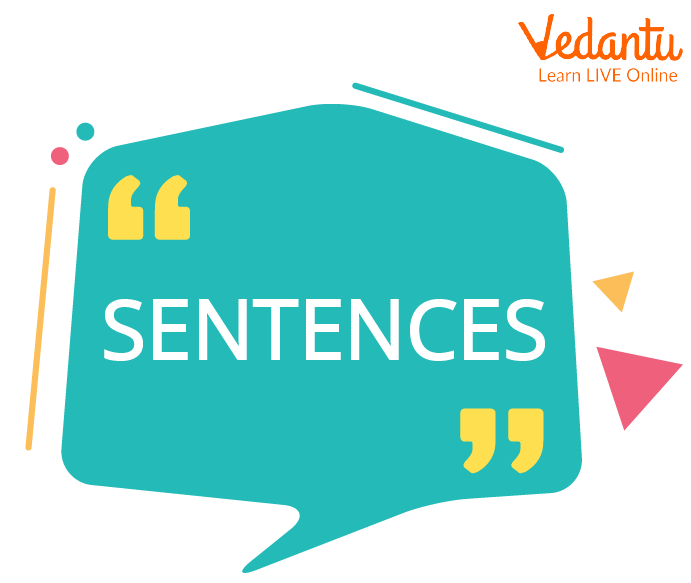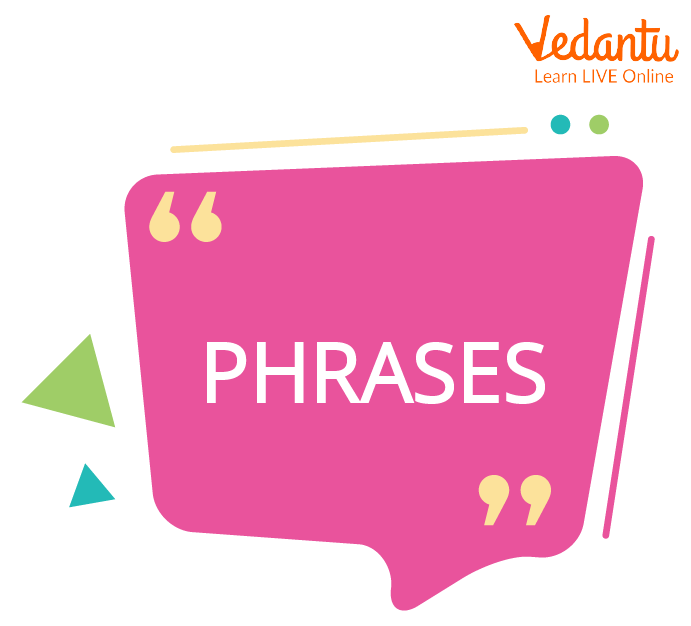Practice Sentences and Phrases: Class 2 English with Free PDF Download
FAQs on Sentences and Phrases Explained for Class 2 English Grammar (2025-26)
1. What is a sentence and what are its two main parts that are important for Class 2?
A sentence is a group of words that makes complete sense. For Class 2, it is important to remember that a sentence must start with a capital letter and end with a punctuation mark. The two main parts of a sentence are the Subject (who or what the sentence is about) and the Predicate (what the subject is or does). For example, in the sentence 'The bird is singing,' 'The bird' is the subject and 'is singing' is the predicate.
2. What are the four important types of sentences that frequently appear in exams?
For Class 2 exams, as per the 2025-26 CBSE syllabus, it is important to identify four main types of sentences:
- Assertive Sentence: A sentence that states a fact or makes a statement (e.g., The sky is blue.)
- Interrogative Sentence: A sentence that asks a question and ends with a question mark (?) (e.g., What is your name?)
- Imperative Sentence: A sentence that gives a command, order, or request (e.g., Please close the door.)
- Exclamatory Sentence: A sentence that expresses a strong feeling and ends with an exclamation mark (!) (e.g., What a beautiful flower!)
3. How do you solve jumbled sentence questions, a common exercise in Class 2 English exams?
To correctly answer a jumbled sentence question, follow these steps: First, find the word that starts with a capital letter, as this is usually the beginning of the sentence. Next, identify the main action (the verb) and who is doing it (the subject). Arrange the remaining words to form a complete, meaningful thought that ends with the correct punctuation. For example, if the words are 'playing / are / children / the / park / in', the correct sentence is 'The children are playing in the park.'
4. Why is a phrase different from a sentence?
A phrase is different from a sentence because it does not express a complete thought. A phrase is a group of words that makes some sense but is missing a subject or a verb, or sometimes both. For example, 'in the garden' is a phrase. It tells us a location, but we don't know who is in the garden or what is happening. A sentence, like 'The boy is in the garden,' has both a subject ('The boy') and a verb ('is') and is complete.
5. How can a student decide whether to use a full stop (.), question mark (?), or exclamation mark (!) at the end of a sentence?
Choosing the correct end punctuation is a very important skill. Here is a simple guide:
- Use a full stop (.) for sentences that state a fact or give a command (Assertive and Imperative sentences).
- Use a question mark (?) for sentences that ask for information (Interrogative sentences).
- Use an exclamation mark (!) for sentences that show strong feelings like excitement, surprise, or shock (Exclamatory sentences).
6. Why is it an important rule for a sentence to always start with a capital letter?
Starting a sentence with a capital letter is an important rule because it acts as a signal to the reader that a new idea or thought is beginning. This helps make writing clear, organised, and easy to read. In exams, not using a capital letter at the beginning of a sentence can lead to losing marks, as it is a fundamental rule of English grammar.
7. Can you give an example of an important question that asks to identify the sentence type?
A common and important question in Class 2 assessments involves identifying sentence types. For instance, a student might be given the sentence: 'What a fun day we had!' The expected answer is to identify it as an Exclamatory sentence because it expresses strong emotion and ends with an exclamation mark. Another example is, 'Please pass the book,' which should be identified as an Imperative sentence as it makes a request.
























